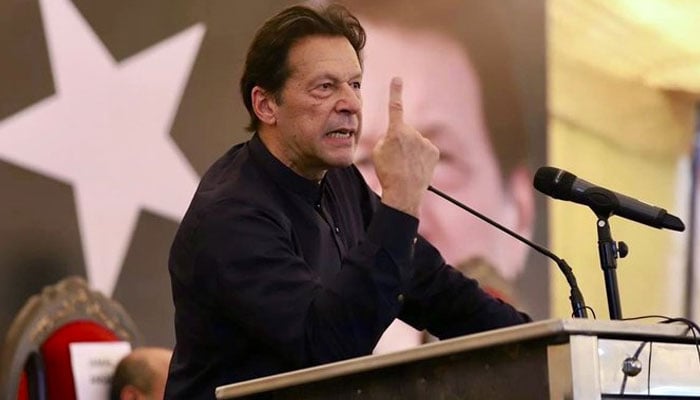Found about economic issues after becoming PM, says Imran Khan
Imran Khan said his party will make decisions which will be unprecedented in the national history
August 31, 2022

- Imran Khan said he knew about the economic issues after he came into power.
- Says will come into power with full preparations for economic challenges.
- Says the opposition did not let the parliament function during his three odd years.
Chairman Tehreek-e-Insaf (PTI) Imran Khan said that he came to know about the country's economy, current account deficit and other issues after becoming the prime minister of Pakistan.
"The PTI has learnt how to run the national economy while grappling with challenges," he said while addressing a seminar in Islamabad.
"Next time, we will come into power fully prepared."
Economic growth depends on political stability, he said. He noted that the opposition, however, did not allow the parliament to function during the three and a half years of the PTI government, resulting in political uncertainty.
Imran Khan revealed that he discovered several issues including the current account deficit after he assumed the premiership. However, he has learned them during the challenges facing the PTI government, he said.
The PTI chief hit out at the election chief, saying overseas Pakistanis helped the PTI which was made into a drama at the Election Commission of Pakistan.
"If the PTI is voted into power, we will make decisions that are unprecedented in the country," he added.
Imran avoids apology
In a response submitted on August 30 to the Islamabad High Court (IHC) over a show-cause notice, Imran Khan did not apologise for threatening the additional sessions judge of Islamabad, Zeba Chaudhry. He, however, offered to withdraw his remarks “if they were inappropriate.”
The high court had issued him a notice in the terrorism case registered against him for threatening the judge.
"As someone who believes in rule of law and a strong independent justice system, the respondent does not believe in hurting the feelings of honourable judges.
"The respondent submits with humility that if words he uttered is regarded as inappropriate, he is willing to take them back," he said, urging the court to evaluate the speech within the context it was made.









